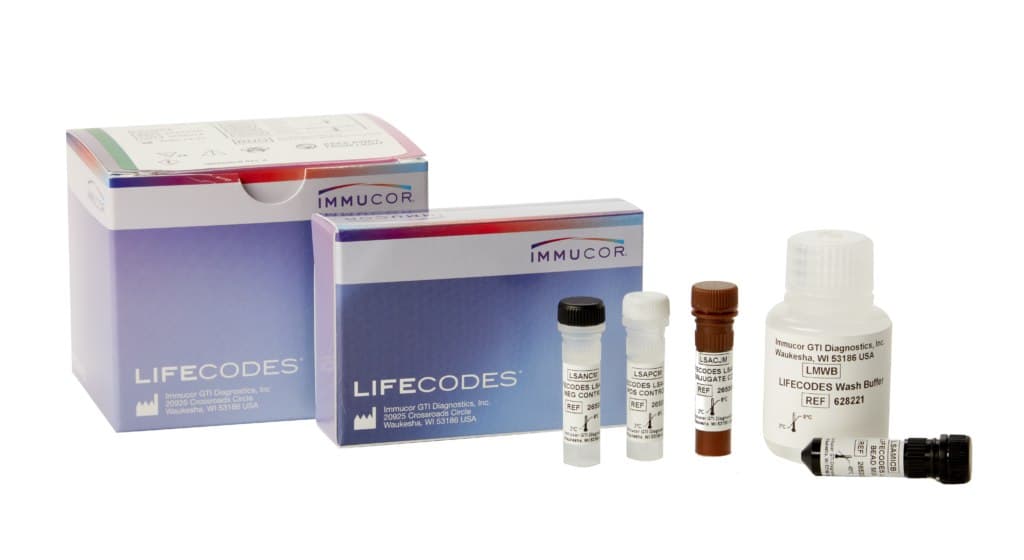Single-Antigen Assays Increase Clinical Laboratory's Ability to Identify Acceptable Donors for Transplants
Posted on 08 Mar 2022
A portfolio of newly-launched single antigen assays increases the ability of clinical laboratories to find acceptable donors in order to provide new beginnings for more transplant patients.
Immucor, Inc.’s (Norcross, GA, USA) enhanced performance, Luminex single antigen product, LIFECODES Single Antigen Assays (LSA) Class I and Class II Assays, demonstrates a lower false positive rate, deliver increased coverage and optimized performance, and improve the overall workflow of the LIFECODES HLA Antibody Analysis portfolio. They also result in fewer false positive reactions by reducing non-specific reactivity. LIFECODES LSA ensure increased accuracy by enabling greater lot to lot reproducibility with all antigen values normalized to an external standard as well as reducing inter and intra site variability with a new calculation for positive/negative assignments.

Additionally, Immucor has announced the global launch of MIA FORA NGS EXPRESS HLA Typing Software. This new software offering gives users of MIA FORA NGS MFlex HLA Typing assays a faster and easier NGS analysis experience. MIA FORA NGS EXPRESS will also allow users the cost-saving option of a standard Windows desktop computing system in addition to the current Linux server.
Immucor’s MIA FORA software portfolio has been developed based on the company’s extensive experience with HLA Typing bioinformatics. MIA FORA Software, including the newly launched EXPRESS, continues to be the only NGS HLA analysis solution that uses three algorithms for analysis of genotyping calls and a proprietary solution for precise mapping and alignment. The EXPRESS software’s updated smart flagging system allows users to make confident allele calls rapidly. Users will find the enhanced performance of EXPRESS allows for faster total turn-around time for analysis.
MIA FORA NGS Express HLA Typing Software is now available as Research Use Only (RUO) in the US, and is CE Marked. Immucor’s LIFECODES LSA has also received FDA clearance in the US in conjunction with its MATCH IT! Antibody Software. LIFECODES LSA is a key differentiator in Immucor’s transplant market portfolio that better serves all stakeholders, from the laboratory and transplant teams to the patients and their families.
“This milestone highlights Immucor’s ongoing investment in our transplant antibody portfolio,” said Christie Otis, Immucor’s Chief Marketing Officer. “We are proud to offer IVD cleared product for the US transplant community and plan to expand commercialization of LIFECODES LSA to new markets supported through this regulatory investment.”
“The launch of MIA FORA NGS EXPRESS showcases Immucor’s ongoing dedication and partnership to the transplant community and our investment in improving workflows for the rapidly evolving needs of the HLA testing community,” said Avi Pelossof, Immucor’s President and CEO.
Related Links:
Immucor, Inc.











 (3) (1).png)


